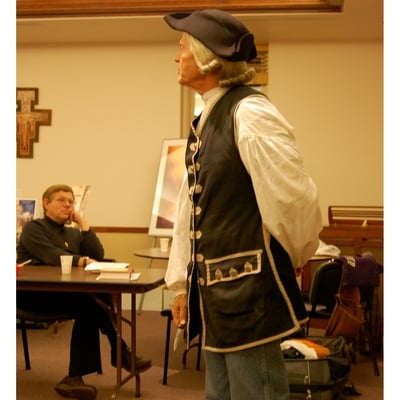My unease has been caused by several factors: 1) monastic models of piety frankly don’t work for busy normal Christian people. They are not only too demanding, they require too much time away from the very things God in fact most needs them to be committed to doing; 2) I have also been disturbed by the individualistic and frankly self-centered nature of much of this literature which ignores that the dominant place where spiritual formation does and should happen, according to the NT itself, is when the body of Christ comes together, not when I go off alone into the woods. This is not to say there is not a place for spiritual retreats from time to time. There is. But it is not the stuff of day to day spiritual formation; 3) the connection between spiritual formation and sanctification, or spiritual formation and conversion or spiritual formation and ecclesiology, or spiritual formation and ethics, is too seldom explored. Rather, we get models of spirituality that are disconnected even from religion in general and Christian worship in specific. At least in the Christian tradition, this ought not to be the case. 4) As a Wesleyan person I have also found much of the spiritual formation literature too quietistic, by which I mean, too disconnected from things like works of charity, and even from things like Communion, which Wesley saw as perhaps the major means of grace for all Christians, the major means of spiritual formation. 5) The way the Bible has been used in the spiritual formation literature is often painfully wrong. The Bible in itself has lots of ‘spiritual’ content. It does not require a sort of gnostic spiritual reading of the text to get this, and it certainly doesn’t require an anti-historical anti-academic reading to get at this. And lastly, 6) too much of the spiritual formation literature is indebted to modern psychology with its fixation on human feelings. Feelings, however, as Eugene Peterson once said, are no good barometer of where your relationship with God really is. Spiritual formation, in the primary sense, is what God does in and for us in the person of the Spirit. And that Spirit is a spirit of holiness.
These and related matters are some of the things I will be talking about in this series of posts. Yes, a small book is forthcoming on this subject, offering a different model of spiritual formation, which while a deeply personal matter, is not a private matter. What you will get in these posts is just a preview of coming attractions.


